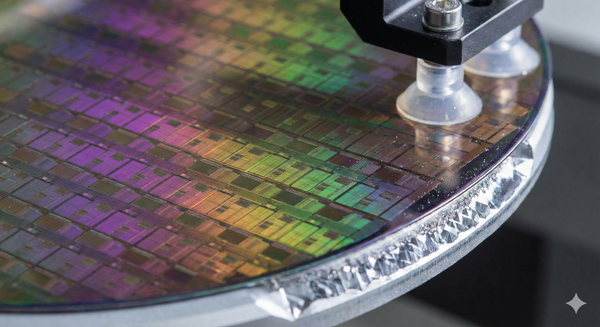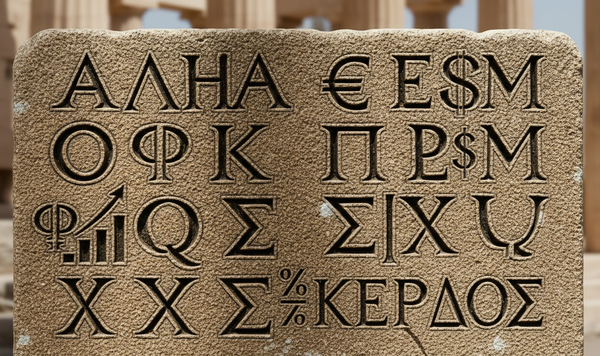The emergency fund paradox: why saving for disasters makes everything better

While most people think emergency funds are just boring piles of "dead money," research shows that folks with emergency funds experience 21% higher financial well-being, leading to better investment decisions. Here's the kicker: having just $2,000 in emergency savings delivers this massive psychological boost - an effect that's actually stronger than the 18% boost from having over $1 million in assets.
That's right, a modest safety net provides more peace of mind than being a millionaire without one! It boils down to the difference between liquid and illiquid wealth. Most households accumulate wealth in illiquid forms (that $1M example), but these assets aren't readily available to solve an immediate cash crunch like a car repair or medical bill. The $2,000 liquid buffer solves the problem at hand, removing day-to-day financial stress.
Fun Fact: The average American spends more on coffee annually ($1,100) than they have in emergency savings!
With 37% of Americans unable to cover a $400 emergency expense and stress costing the economy more than $180 billion annually in lost productivity due to employee financial stress. The math is crystal clear: the best offense is a killer defense.
The plot twist nobody saw coming
Picture this: Grace Lemire, a 25-year-old freelancer in Boston, thought she was just being boring with money. While her friends were YOLO-ing their paychecks on weekend trips and designer coffee subscriptions, Grace was methodically building what she called her "just-in-case" fund. Then life decided to test her strategy with a one-two punch that would make Mike Tyson proud.
First, her car needed $1,000 in brake repairs (because apparently, stopping is important). Then, exactly two weeks later, a routine dermatologist visit turned into an $800 surprise medical bill when they decided to biopsy a suspicious mole. Total damage: $1,800 that would've sent most people straight to Credit Card Hell.
But here's where the story gets interesting - and where Grace discovered what researchers call the preparedness paradox. Instead of panic-scrolling through loan apps at 2 AM, Grace felt... relief? "Having that emergency savings put me in a position where money wasn't an issue when I got those bills," she explained.
The real kicker? That $1,800 withdrawal didn't just solve her immediate problems - it preserved her ability to take strategic risks with her content creation business. While her peers were drowning in debt payments and making survival-mode decisions, Grace could continue investing in equipment and growth opportunities. Her "boring" emergency fund had become her secret weapon for intelligent risk-taking.
Why your brain needs cash to think clearly
Financial emergencies have a supernatural ability to strike at the absolute worst possible moments - when your checking account is already gasping for air. But the real damage goes deeper than your bank balance.
Stanford researchers tracked 464 participants facing financial scarcity and discovered something fascinating: when these folks were financially stressed, their cognitive performance dropped by 13 IQ points! Here's the cruel irony: this mental fog hits precisely when you need your decision-making superpowers most.
When you're stressed about money, your brain becomes a terrible financial advisor. Nobel Prize winners Daniel Kahneman and Amos Tversky discovered the "Reflection Effect" - when people face potential losses (like a down portfolio), they become weirdly risk-seeking, making desperate gambles to avoid sure losses. Your brain switches from "careful investor" mode to "Las Vegas at 3 AM" mode at exactly the wrong time.
Research on "loss aversion" shows that the psychological pain of losing money is roughly twice as powerful as the pleasure of gaining the same amount. So losing $100 feels way worse than gaining $100 feels good. This explains why broke people make terrible investment decisions - they're operating from constant loss aversion, making every financial choice feel like a threat.
Why cash makes you a better investor
Here's where traditional finance theory gets it completely wrong. Financial Twitter loves to shout: "Emergency funds are dead money! You're losing out on market returns! You could be making 10% in stocks instead of 4% in savings!"
These opportunity cost calculations are mathematically correct and strategically about as useful as a screen door on a submarine. They assume that without an emergency fund, people would invest that money in the stock market and just... leave it alone for decades like some zen investing monk. Reality check: that's not how humans work when financial stress hits the fan.
Federal Reserve research reveals the truth: households with adequate emergency funds are three times more likely to invest in growth assets and maintain consistent contributions during market volatility. The emergency fund isn't making you risk-averse - it's giving you the psychological safety net to take smart risks.
When COVID hit in March 2020, Japanese researchers tracked real investor behavior and found 30% of investors panic-shuffled their portfolios during the downturn. Men were 3.1% more likely to hit the panic-sell button, and the most optimistic investors before the crash became the biggest sellers during it. Meanwhile, the S&P 500 dropped 34% in that initial nosedive, then promptly recovered to new highs while panic sellers were still hiding under their desks.
Check out this real-world example:
| Year | Investor A (Fully Invested) | Investor B (With Emergency Fund) | What Happened |
|---|---|---|---|
| 2007 Start | $100,000 | $100,000 ($75k stocks, $25k cash) | Same starting point |
| March 2009 | $43,000 | $57,250 ($32,250 stocks, $25k cash) | Market down 57% from peak |
| After Emergency | $18,000 | $32,250 | A forced to sell stocks, B used cash |
| End 2023 | $87,968 | $157,609 | $69,641 difference |
*Based on S&P 500 performance: 57% decline during 2008-09 crisis, 12% average annual recovery 2009-2023
Your emergency fund isn't competing with your investments - it's making better investing possible by keeping you out of panic mode. The magic happens through "bandwidth preservation." When survival needs are covered, your brain focuses on opportunity recognition instead of threat scanning.
Plus, today's high-yield savings accounts are paying 4.0-4.6% APY, which actually beats inflation for the first time since 2019. Your "dead money" is now earning real returns while keeping you psychologically bulletproof.
Size matters (but not how you think)
Everyone's heard the classic advice: "Save 3-6 months of expenses for emergencies." But optimal emergency fund sizing has less to do with your income and more to do with how complicated your life is.
| Life Stage | Sweet Spot | Why This Amount? |
|---|---|---|
| Singles (20-30) | $1,000 + 3 months expenses | Job flexibility, family backup available |
| Families | 6-9 months expenses | Multiple humans to keep alive = higher costs |
| Entrepreneurs | 9-12 months expenses | Income rollercoaster + business survival |
| Retirees | 12-24 months expenses | Healthcare surprises + limited income replacement |
Recent financial surveys show significant variation in emergency fund balances. The average American emergency fund is approximately $16,800, though the median is much lower at $600 according to Empower's 2024 study. This massive gap reveals how a few high-balance savers skew the average - most people are working with far less.
The U.S. News Emergency Fund Survey 2024 found notable gender differences, with men averaging $11,000 in emergency savings compared to women's $6,500. The survey also revealed that 49% of women have no emergency fund at all, compared to 35% of men.
The optimal emergency fund size isn't just about covering expenses - it's about creating enough psychological cushion to turn you into a decision-making machine while matching the actual risks of your specific life situation.
The liquid vs. accessible spectrum
Not all emergency fund parking spots are created equal, and 2025 is actually bringing some good news for savers! We're living through the best emergency fund interest rate environment in over a decade, with high-yield savings accounts hitting 4.0-5.0% APY - which means your emergency fund is actually beating inflation for the first time since 2019. Finally, some love for the cautious savers!
| Vehicle Type | Current APY | How Fast Can You Get It? | Best For |
|---|---|---|---|
| High-Yield Savings | 4.0-5.0% | Right now | Your main emergency stash |
| Money Market | 3.8-4.5% | Right now | Bigger balances + check access |
| Cash Management | 4.0-4.3% | 1-2 days | Tech lovers + higher FDIC limits |
| Short CDs | 4.3-4.6% | 30+ days (ouch, penalties) | Part of fund if you want rate lock |
| Treasury Bills | 4.19-4.31% | 1-3 days | Tax perks + government backing |
Sources: NerdWallet Best High-Yield Savings, Federal Reserve Treasury Rates
The tiered approach is where smart savers are getting fancy:
- Tier 1 (1-2 months expenses): High-yield savings for instant "oh crap" access
- Tier 2 (2-4 months expenses): Money market or short CDs for slightly better returns
- Tier 3 (Additional reserves): Treasury bills or cash management accounts for optimization nerds
Here's the golden rule that'll save you from overthinking this: accessibility beats yield for emergency funds, every single time. The difference between 4.0% and 4.6% APY on a $10,000 emergency fund equals $60 annually - basically irrelevant compared to the cost of not having immediate access when your car decides to have an expensive breakdown on the day your rent is due.
Your emergency fund's job isn't to make you rich - it's to keep you sane and solvent when life throws its inevitable curveballs. Save the yield optimization for your investment accounts where it actually matters!
Building without pain (because torture isn't sustainable)
Building an emergency fund feels about as exciting as watching paint dry, but research-backed strategies can trick your brain into actually enjoying it.
Automation beats willpower every time. Research by financial psychologist Dr. Brad Klontz shows that combining goal visualization with automated savings can increase savings rates by 73% in just one month. The key is emotional engagement plus automatic systems that eliminate willpower from the equation.
The 4-Phase battle plan
Phase 1: Foundation ($1,000)
- Timeframe: 2-6 months
- Strategy: Sell stuff, cut one major expense, hijack tax refund
- Why it works: That first $1,000 provides immediate psychological boost
Phase 2: Momentum (1 month expenses)
- Timeframe: 6-12 months
- Critical phase: This is where many people struggle to maintain momentum
- Strategy: Add round-up programs, celebrate non-money rewards
Phase 3: Acceleration (3 months expenses)
- Timeframe: 12-24 months
- Strategy: Funnel raises/bonuses, optimize your high-yield account
Phase 4: Optimization (6+ months expenses)
- Timeframe: 24+ months
- Strategy: CD ladders, cash management accounts, annual reviews
Psychology hacks that actually work
Round-up programs are genius because they exploit your brain's weird relationship with spare change. You don't feel the "loss" of 73 cents the same way you'd feel a deliberate $100 transfer. Average boost: $600-1,200 annually of painless saving.
Goal breakdown magic fights the "this is impossible" feeling by chunking that intimidating $15,000 target into digestible $1,000 monthly goals. Completion rates jump 60% when you can actually see progress.
Account separation leverages mental accounting bias in your favor. Money in accounts labeled "Emergency Fund" faces way stronger psychological barriers to casual spending than money sitting in your general savings account.
Gamification for the win addresses your brain's need for instant gratification by providing dopamine hits for good saving behaviors. Apps like SaverLife report 40% higher engagement when you get to watch progress bars fill up and hit achievement unlocks.
The key insight? Your emergency fund isn't being built through willpower - it's being built through smart systems that work with human psychology instead of against it. Work smarter, not harder, and definitely not more miserably!
Your financial superpower awaits
Here's the plot twist that makes this whole article worth reading: the best defense really is the best offense when it comes to money. Preparing for financial disasters doesn't just prevent catastrophe - it unlocks opportunities that both the overly cautious and the recklessly optimistic completely miss.
The evidence is absolutely overwhelming. People with emergency funds sleep better (literally), make superior investment decisions, work more productively, and accumulate significantly more wealth over their lifetimes. They face financial crises with strategic calm instead of panic-driven mistakes that can take years to recover from.
Your mission, should you choose to accept it: open a high-yield savings account THIS WEEK and set up an automatic transfer of $100 from your next paycheck. Not $50, not "when I feel like it," not "after I pay for [insert latest expense]" - $100 on a specific date that you pick right now. That single decision begins your transformation from financial vulnerability to financial strength.
Think of it as buying yourself the ultimate upgrade: the luxury of not panicking when life inevitably decides to test your financial reflexes.
Your Emergency Fund Reality Check ✅:
- [ ] High-yield savings account opened (targeting 4%+ APY)
- [ ] Automatic transfer scheduled for your next payday
- [ ] First $1,000 milestone date locked in
- [ ] Personal emergency fund target calculated for your situation
- [ ] One friend recruited as your accountability partner (peer pressure works!)
The emergency fund paradox isn't really a paradox at all - it's just good financial sense disguised as counterintuitive advice. In money, as in life, those who prepare for the worst position themselves to achieve the best.
Start today. Your future self - successful, secure, and strategically positioned for every opportunity that comes along - is counting on the decision you make right now. And trust me, future you is going to be really grateful for present you's smart choices.
Ready to build your financial superpower? Let's do this! 💪





